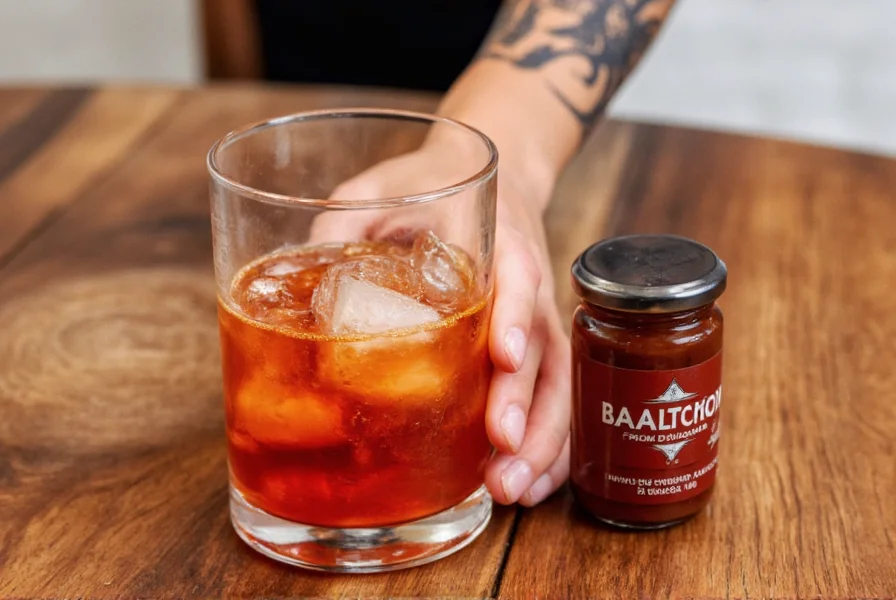Ancho chili — the deep red, mildly spicy, and smoky-sweet darling of Mexican cuisine. Whether you're a home cook or a spice pro, ancho chili deserves a permanent spot in your pantry. But here's the thing: there's way more to it than meets the eye.
Table of Contents
What Exactly is Ancho Chili?
Ancho chili is a dried poblano pepper known for its deep red color, mild heat (1,000–2,000 Scoville units), and smoky-sweet flavor profile. It starts life as a fresh green poblano pepper that ripens to red before being sun-dried. This drying process concentrates the pepper's natural sugars and develops complex earthy notes, making it a cornerstone of authentic Mexican cuisine.

Think of it like the relationship between fresh tomatoes and sun-dried tomatoes — the same base ingredient, but with intensified flavor and versatility. Ancho chili's mild heat and rich complexity make it ideal for both beginners and experienced cooks.
Flavor Profile & Heat Level
Ancho chili delivers a unique balance of sweetness and smokiness:
- Smoky: Earthy, campfire-like depth from the sun-drying process
- Sweet: Notes of dark chocolate, raisins, and dried plums
- Mild Heat: 1,000–2,000 Scoville units (milder than jalapeños)
| Flavor Attribute | Description |
|---|---|
| Heat Level | Mild (1,000–2,000 SHU) |
| Flavor Notes | Smoky, sweet, fruity, earthy |
| Common Uses | Moles, stews, rubs, sauces |
This mildness makes it approachable for spice newbies, while its layered flavor profile offers depth for culinary experts.
Top 5 Ways to Use Ancho Chili in Your Kitchen
- Make a Flavor-Packed Mole: Ancho chili is the foundation of traditional mole sauces. Blend it with almonds, spices, and dark chocolate for that rich, complex sauce.
- Create Dry Rubs: Grind dried anchos into powder and mix with cumin, garlic powder, and smoked paprika for a killer meat rub.
- Add Depth to Soups and Stews: Whole or chopped anchos infuse broths, chili, and bean dishes with warmth and complexity.
- Infuse Oils or Vinegars: Toss whole anchos into oil or vinegar for subtle background heat and flavor that enhances dressings and marinades.
- Spice Up Baked Goods: Add a pinch of ground ancho to brownies, chocolate cakes, or spiced cookies for a surprising sweet-heat twist.
Ancho vs. Other Dried Chilies: A Quick Comparison Table
When exploring dried chilies, understanding their differences helps you choose the right one for your dish:
| Chili Type | Heat Level (SHU) | Flavor Notes | Best Used In |
|---|---|---|---|
| Ancho | 1,000–2,000 | Smoky, sweet, fruity | Mole, soups, sauces |
| Guajillo | 2,500–5,000 | Tangy, floral, berry-like | Salsas, marinades |
| Pasilla | 2,500–3,000 | Fruity, raisin-like, herbal | Stews, moles |
| Chipotle | 5,000–10,000 | Smoky, spicy, earthy | Barbecue sauces, meats |
Buying Guide: Choosing the Best Ancho Chili
Not all ancho chilies are created equal. Here's what to look for:
- Color: Deep reddish-brown without fading or discoloration
- Texture: Plump and slightly leathery, not brittle or overly dry
- Size: Larger, wider pods typically have more flesh and better flavor
- Aroma: Earthy and smoky, not musty or moldy
Top Picks for Ancho Chili Brands
| Brand | Features | Pros | Cons | Best For |
|---|---|---|---|---|
| La Flor de Jalisco | Mexico-grown, hand-selected anchos | Consistent quality, bold flavor | Higher price point | Pro chefs and serious home cooks |
| Mc Cormick Culinary | Organic, food service grade | Reliable, certified organic | Slightly drier than fresh | Caterers and restaurant kitchens |
| Simply Organic | Whole dried anchos, USDA certified | Eco-friendly packaging, affordable | Some variability in size | Home cooks and hobbyists |
How to Store Ancho Chili Like a Pro
Proper storage preserves ancho chili's flavor for months:
- Airtight Container: Store in sealed glass jars or vacuum-sealed bags to prevent moisture absorption
- Cool, Dark Place: Keep away from sunlight in a pantry or cabinet
- Freeze for Long-Term: Freeze whole or ground ancho for up to 2 years
- Grind Only When Needed: Ground ancho loses potency faster than whole peppers
Health Benefits of Ancho Chili
Beyond flavor, ancho chili offers these science-backed benefits:
- Rich in Antioxidants: Helps combat oxidative stress and reduce inflammation
- Vitamin A Boost: Supports vision, immune function, and skin health
- Caprylic Acid: May aid digestion and support gut microbiome balance
- Low in Calories: Adds flavor without extra fat or sugar
Frequently Asked Questions
Can I substitute ancho chili with another chili?
Yes! Guajillo or pasilla are closest in flavor. Chipotle works if you want more heat and smoke. Mulato chilies also make a good substitute as they're from the same family but with deeper, darker notes.
Are ancho chili and poblano the same?
No. Poblano is fresh and green; ancho is the dried, mature red version. Think of them like fresh tomatoes versus sun-dried tomatoes — related but with concentrated flavors.
Is ancho chili gluten-free?
Yes, naturally gluten-free. Just make sure any seasoning blends or packaged products are also GF. Pure dried ancho chilies contain no gluten.
Can I eat ancho chili raw?
It's tough and bitter if eaten raw. Rehydrate or grind it before using. The drying process means they need preparation to unlock their best flavors.
How do I rehydrate ancho chili?
Toast briefly in a dry pan, then soak in hot water or broth for 20–30 minutes until soft. For deeper flavor, add a clove of garlic or a bay leaf to the soaking liquid.
Why is it spelled 'ancho chill' in some places but 'ancho chili' in others?
'Chili' is the standard spelling for the pepper, while 'chill' is a common misspelling. The correct term is 'ancho chili' (or 'ancho chile' in some regions), but many people search using the misspelling 'ancho chill,' which is why you'll see both variations online.
How hot are ancho chilies compared to other common peppers?
Ancho chilies range from 1,000-2,000 Scoville units, making them milder than jalapeños (2,500-8,000 SHU) but with more complexity. They're about as hot as a poblano pepper but with sweeter, smokier notes from the drying process.
Where can I buy authentic ancho chilies?
You can find them in most grocery stores' spice aisles, Latin markets, or online. For the best quality, look for Mexican-grown anchos from reputable spice merchants. Specialty Mexican grocery stores often carry the freshest options.

Final Thoughts
Ancho chili isn't just a spice — it's a gateway to bold flavors and cultural richness. Whether you're simmering a mole, spicing up a rub, or experimenting with baked treats, ancho opens up a world of culinary creativity. Don't underestimate its mild heat — that depth and sweetness can transform even the simplest dishes into something memorable.
Ready to take your spice game to the next level? Grab some ancho chili and start playing in the kitchen. Your taste buds will thank you!










 浙公网安备
33010002000092号
浙公网安备
33010002000092号 浙B2-20120091-4
浙B2-20120091-4